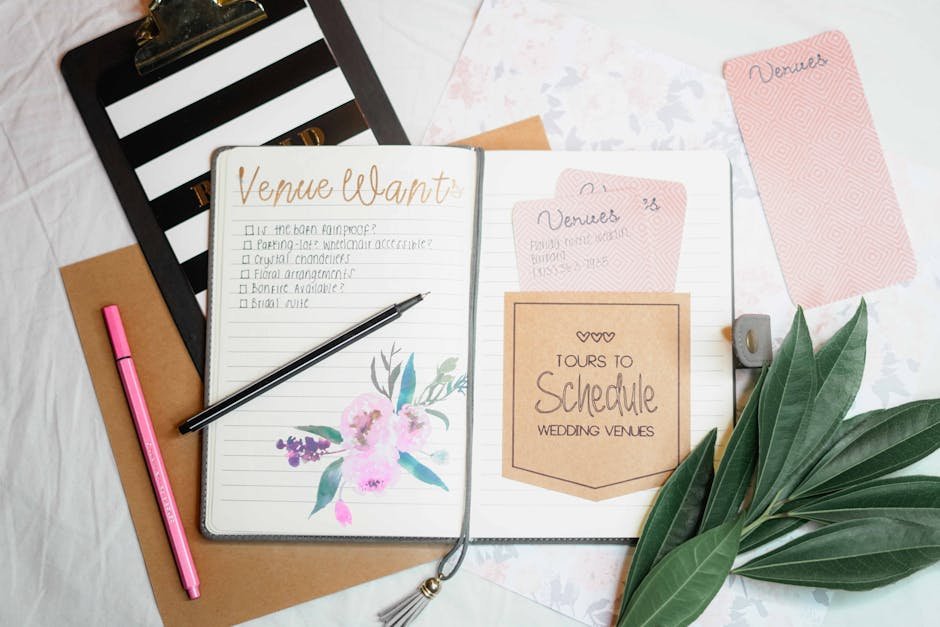How Far in Advance Should I Book a Venue for My Event?
Planning an event comes with its fair share of decisions, with one of the first being the venue. Knowing when to book can be the difference between snagging your dream spot or settling for what's left. Let's dive into the best time frames for booking your event venue, ensuring your gathering is one for the books!
Understanding the Importance of Timing
Kick off your planning process by understanding why timing is crucial in booking an event venue. From seasonal demands to special event rushes, we'll cover all you need to know. Timing impacts not only availability but also pricing, as last-minute bookings often come with a premium. Booking well in advance can also give you leverage in negotiations, potentially lowering costs.
The dynamics of supply and demand play a significant role in event planning. For instance, venues can be harder to book during peak wedding season or major holidays. This scarcity can limit your options and push you towards making a decision faster than you might like. Hence, starting early is critical.
Types of Events and Their Lead Times
Different events come with their own set of expectations and timelines. Weddings, for example, require the longest lead time, with experts recommending booking at least 12 to 18 months in advance to secure your ideal venue. Corporate events and conferences might need less time, generally around 6 to 12 months, depending on the size and scale.
Smaller gatherings like birthdays or anniversaries offer more flexibility but benefit from at least a few months' foresight. This timeline ensures you have enough room to plan other aspects of your event without feeling rushed.
A Comprehensive Timeline for Booking
Discover the ideal booking timeline that applies to most venues. Aiming for a year in advance is a safe bet for most types of events. This time frame strikes a balance, giving you enough options without the pressure of immediate decisions. It allows for thorough comparison and thoughtful decision-making, ensuring you settle on a place that truly meets your needs.
Adjusting this timeline can be necessary based on your specific event's characteristics. High-demand venues in large cities might require even earlier bookings, especially for peak dates.
Factors That Influence Booking Time
Unearth the various factors that might affect how far in advance you should book. Popularity and location of the venue are major considerations. Iconic or in-demand spots often book out years in advance. The time of year also plays a significant role; summer months and holiday seasons see a spike in bookings.
Your budget is another critical factor. Early bookings might secure better rates, as venues tend to increase prices closer to the date. Knowing your guest list size early can also influence your decision, as larger groups require larger spaces, which are limited and book up quickly.
Last-Minute Bookings: Pros and Cons
Last-minute bookings aren't always a disaster. Sometimes, they can lead to unexpected deals, especially if a venue is looking to fill a date. However, you're likely to face limited options and may have to compromise on your vision for the event. The stress of organizing an event quickly can also be a significant downside.
The trade-offs of a last-minute booking are clear: potential savings for flexibility and choice. Weighing these pros and cons depends on your event's nature and your willingness to adapt.
Tips for Early Bookings
Securing your venue early can alleviate much of the stress associated with event planning. To ensure a smooth process, always visit the venue beforehand to ensure it matches your expectations. Negotiating with venues well in advance can also lead to better rates and more inclusive packages.
Utilize this early lead time to plan meticulously. Consider every aspect of your event, from catering to decoration, to ensure your venue choice aligns with your vision. Early communication with service providers can also secure better deals and ensure a cohesive event experience.
Navigating High-Demand Periods
Booking during high-demand periods requires a strategic approach. Start by identifying off-peak days within these high-demand seasons, as they can offer more flexibility and better pricing. For weddings, considering a Friday or Sunday instead of the traditional Saturday can make a big difference.
If you're set on a peak time, be prepared to book well in advance or be flexible with your dates. Sometimes, shifting your event by just a week or two can free up more venue options and possibly lower costs.
The Takeaway
Ultimately, the key to booking the perfect venue lies in starting your search early. By allowing ample time, not only do you increase your chances of securing your top choice, but you also provide yourself with enough wiggle room for adjustments. Remember, the early bird doesn't just get the worm; it gets the best venue too! Ready to start your journey to the perfect event? Begin by exploring our homepage.
